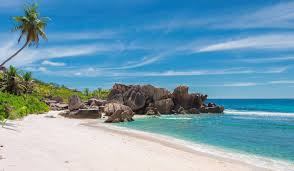Introduction
“Paradise” is a single word that sparks big images: lush gardens, calm seas, golden light, or the peace we feel in our happiest moments. This article explains what Paradise means across cultures, nature, travel, and the mind — and why the idea still matters today.
What Paradise means (simple definition)
At its core, Paradise means a place or state of perfect happiness, safety, and beauty. The word often describes:
- A physical place that feels flawless (a tropical beach, a mountain valley).
- A spiritual or afterlife realm of peace and reward in many religions.
- A mental state of peace, contentment, or joy.
The idea is flexible: for one person, Paradise is a quiet garden; for another, it’s reuniting with loved ones. Across languages and history, the word captures the wish for a perfect, trouble-free place.
Origins and cultural history
The word “paradise” comes from an ancient term meaning “walled garden.” Long ago, cultivated gardens were rare and valuable places of shade, water, and food so they became a natural symbol for a perfect place. Over centuries, religious traditions expanded the idea:
- In many forms of Christianity, Islam, and Judaism, Paradise describes a blessed afterlife.
- In Zoroastrian, Hindu, and Buddhist texts, similar ideal realms appear with different names and meanings.
- Folktales and literature often adapt the theme: enchanted islands, hidden valleys, and utopias that represent humanity’s hopes.
Because of these deep roots, the word carries spiritual weight as well as everyday use.
Paradise in nature: real places that feel like paradise
Many people use Paradise to describe places on Earth that feel extraordinarily beautiful or peaceful. Examples include coral reefs, tropical islands, old-growth forests, and alpine meadows. These places often share features that make them feel paradisiacal:
- Rich biodiversity (many plants and animals)
- Clean water, clear air, and lush vegetation
- A sense of escape from noise and stress
These natural “paradises” are fragile. Human activity — development, pollution, and climate change — can damage them quickly. That’s why conservation matters: preserving natural paradises preserves biodiversity and the emotional benefits they provide.
Paradise as travel marketing
The word Paradise is also a favorite in travel and tourism marketing. Hotels, resorts, and travel guides use it to promise escape and luxury. When used well, it evokes relaxation, beauty, and excellent service. But be cautious: marketing “paradise” can raise visitor expectations and sometimes encourage over-tourism that harms the very place being promoted. Responsible travel aims to balance visitor enjoyment with protection of local culture and ecosystems.
Psychological Paradise: how the mind creates perfect places
Paradise is not only about locations. It’s also a mental state. People can feel “in paradise” during simple moments: watching a sunset, being with loved ones, or feeling deeply content. Psychology shows that these peak experiences boost wellbeing, reduce stress, and strengthen social bonds.
Creating personal paradises can be practical:
- Design a small space for rest (a cozy corner, plants, soft lighting).
- Build daily rituals that bring calm: a walk, music, or reading.
- Practice gratitude to notice little “paradise” moments in everyday life.
These small actions help people access inner paradise even when they cannot travel.
Paradise in art and literature
Artists, poets, and writers have used Paradise for centuries to explore ideals and human longing. Famous works from epic poems to modern novels use paradisiacal imagery to contrast with human flaws or to show what people hope to achieve. In visual art, lush gardens, distant islands, and glowing light communicate the idea of perfection or escape. These creative uses show how deeply the concept is woven into human imagination.
Ethical and environmental considerations
Because Paradise often refers to rare natural beauty, there are ethical questions:
- Who has the right to visit or develop paradisiacal places?
- How can local communities benefit from tourism without losing control of their land and culture?
- How do we protect fragile ecosystems from damage?
Sustainable solutions include community-led tourism, strict environmental protections, and visitor limits in sensitive areas. When we think of Paradise, it’s useful to remember stewardship: preserving it for future generations.
Modern uses and variations
Today, Paradise appears in many contexts:
- Place names: towns, beaches, and parks often include “Paradise.”
- Business names: spas, hotels, and products use the word to suggest luxury.
- Slang: people say “this is paradise” to mean a very pleasant situation.
The word’s flexibility helps it stay relevant, but it also means the term can be overused. When someone truly calls a place or moment Paradise, it often reflects a strong emotional connection rather than perfect reality.
How to find your own paradise (practical tips)
You don’t need to travel far to find a sense of paradise. Try these steps:
- Identify what makes you feel peaceful: nature, silence, art, or company.
- Create small rituals: a morning cup of tea in a quiet corner, an evening walk, or an art break.
- Protect and respect natural spots: when you visit beautiful places, follow local rules, remove waste, and leave no trace.
- Support conservation: donate, volunteer, or choose eco-friendly travel options.
These steps help you build lasting experiences rather than one-time escapes.
Conclusion
Paradise is a powerful word that blends nature, spirituality, culture, and emotion. Whether it describes a sacred realm, a tropical island, or a quiet moment of joy, the concept points to what people value most: beauty, peace, and safety. Today, thinking of Paradise carries responsibility too especially when real places are at risk. By valuing, protecting, and sharing these special places and moments carefully, we keep the idea of Paradise alive for ourselves and for those who come after us.
